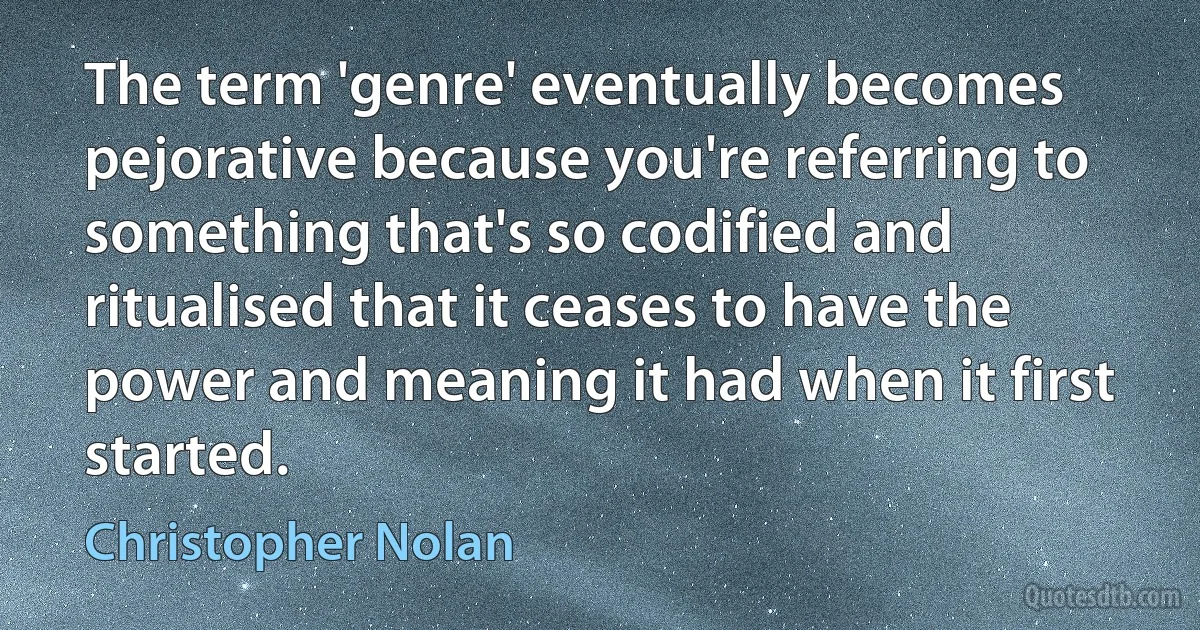Referring Quotes - page 7
That the Babri Masjid replaced a pre-existent centre of worship, is also indicated by the fact that Hindus kept returning to the place, where more indulgent Muslim rulers allowed them to worship on a platform just outside the mosque. This is attested by a number of different pieces of testimony by Western travelers and by local Muslims, all of the pre-British period, as well as from shortly after the 1856 British take-over but explicitly referring to older local Muslim sources. A number of these documents have been presented by Harsh Narain and A. K. Chatterjee. That they are authentic and have a real proof value, is indirectly corroborated by the attempts made to make two of them disappear, which Harsh Narain and Arun Shourie independently discovered.

Koenraad Elst
This universal character of referring and expressing, which is proper to our entire created cosmos, stamps created reality as meaning, in accordance with its dependent non-self-sufficient nature. Meaning is the being of all that has been created and the nature even of our selfhood. It has a religious root and a divine origin.

Herman Dooyeweerd
There really is an ideological, secular aggressiveness that gives cause to worry. Recently in Sweden a Protestant parson was put into jail for one month because - referring to biblical texts - he preached about homosexuality. Laicism is not any longer that element of neutrality that opens fields of freedom for everybody. It's now turning into an ideology, which – with the help of politics – forces itself into the public and leaves no space for the Christian and Catholic conception – thereby turning it into a merely private and essentially mutilated concern. In this sense a fight has really begun in which we have to defend the religious freedom against the pretension of an ideology, that acts as if it were the only voice of reason – whereas it is only the expression of "a certain” rationalism.... A society that is not at all concerned with God destroys itself. We saw that in the totalitarian experiments of the last century.

Pope Benedict XVI
He wants to learn new things and to evolve as a cricketer. What you have to understand is that Joe hasn't played that much T20 cricket, he hasn't had that much experience of playing in the subcontinent, he's still finding his way. So for him to go out in a tough situation [referring to a great game between England and South Africa, where Joe Root's 83 from 44 balls led to an achieved target of 230 to beat South Africa] - probably the situation dictated the way he had to play, started slowly but to keep up with the run rate he had to be innovative. But he just kept his cool, made sure the guys around him do a bit of work as well, so when you look at the bigger concept, he's the guy that England would want to do that kind of role for them in this tournament. [He is a] good all-round cricketer, there are about four-five young good players in this tournament that everyone is going to look out for and he is one of them.

Mahela Jayawardene
Noory: [Referring to the Sago Mine disaster] Of course, this is after the fact, with the 12 or 13 coal miners they found successfully.
Browne: I know.
Noory: Had you been on the program today, and had they not been found, would you have felt as if, because they had heard no sounds, that this was a very gloomy moment, and they might have all died?
Browne: No, I knew they were going to be found. Uh, you know, I hate people who say something after the fact. It's just like I knew when the Pope was dead and I said it on, thank God I was on Montel's show, and I said, according to the time, it was 9-something and whatever Rome time was, and I said he's gone, and he was.

Sylvia Browne
This happened by accident," [Referring to his long hair] "I didn't get round to having a haircut for a while, and when it got long I thought it looked cool. I don't want anyone to change me. And hopefully, one day, I'll be known as the great child singer who developed into a great adult singer. That would be so cool.

Joseph McManners
If nature leads us to mathematical forms of great simplicity and beauty - by forms I am referring to coherent systems of hypothesis, axioms, etc. - to forms that no one has previously encountered, we cannot help thinking that they are "true," that they reveal a genuine feature of nature... You must have felt this too: The almost frightening simplicity and wholeness of relationships which nature suddenly spreads out before us and for which none of us was in the least prepared.

Werner Heisenberg
‘Calcutta, for me, was a particular idea of the modern city, and I found it in many forms, works, and genres. ... by ‘modernity' I have in mind something that was never new. True modernity was born with the aura of inherited decay and life. ... if you look at paintings and photographs, and see old films of the city, you notice that these walls and buildings were never new – that Calcutta was born to look more or less as I saw it as a child. I'm not referring here to an air of timelessness; the patina that gave to Calcutta's alleys, doorways, and houses their continuity and disposition is very different from the eternity that defines mausoleums and monuments. It's this quality I'm trying to get at when I speak of modernity. ... modernity in the nineteenth century is indistinguishable from nature; perhaps it is nature – in some ways, the culvert, which has emerged from the rock, seems more of its place than the mountain itself.' [citation needed].

Amit Chaudhuri



